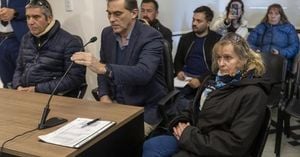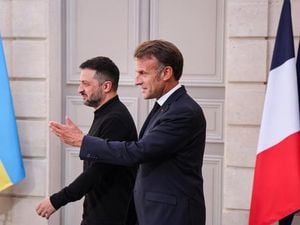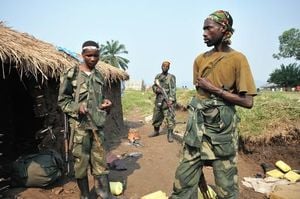The long-standing mystery of the disappearances of Emanuela Orlandi and Mirella Gregori is back in the spotlight, thanks to the recent updates from the parliamentary commission investigating their fates. Vice President Roberto Morassut from the Democratic Party (PD) shared insights on the commission's progress, acknowledging both the challenges they face and the avenues they are exploring.
For over thirty years, the cases of Emanuela and Mirella have haunted Italy, becoming entangled with whispers of intrigue, abductions, and conspiracy theories. Recent discussions have brought renewed focus to the potential motivations behind their disappearances, with Morassut expressing a strong inclination toward the theory of abduction for sexual purposes. He stated, "We are examining all the paths rigorously, and I personally tend to give greater credibility to the idea of kidnapping with sexual motivations.”
While the commission remains open to all possibilities, including financial extortion and international connections, much of the discourse has centered on the dark potential of sexual exploitation. This aspect of the investigation has evoked concern about the intersections of criminal activities and certain religious circles, though no definitive links have yet been established.
The commission has conducted around thirty interviews with witnesses and experts, with Morassut noting the task is arduous. The passage of time has obscured many facts, with key figures lost to the years. “It’s tough to chase leads decades old, especially when people who could shed light on the details have passed away,” he commented. Despite these setbacks, he maintains optimism about the scrutiny of documents and evidence collected, aided by dedicated consultants working alongside the commission.
Morassut openly acknowledges the unfortunate absence of influential figures like Andrea Purgatori and Fiore de Rienzo—a loss felt deeply within the investigative community. “Their contributions were invaluable, and it weighs heavily on us as we try to unravel these complicated stories,” he said.
The recent insistence on holding testimonies under oath has sparked various opinions within the commission. Morassut stated he believes this should be prioritized. "It's imperative for the families and citizens to know the truth. We can implement this if necessary, even if it means overcoming some hesitance from other members,” he asserted. This sentiment aligns with his broader goal of achieving clarity and accountability as their work progresses.
Notably, much discussion has also turned to the transparency of the commission's proceedings. Reports of secretive sessions, particularly those concerning sensitive personal information, have raised eyebrows among the public. Morassut clarified, "When sessions are held behind closed doors, it is usually at the request of those being interviewed to protect their privacy or the potential ramifications of their testimonies. But we managing every confidentiality with strict adherence to our regulations.”
Despite some voices calling for the cases of Emanuela and Mirella to be treated as intertwined, the commission currently sees them as distinct incidents lacking any directly correlatable evidence. Referring to comments made by the attorney representing Mirella Gregori's family, Morassut referred to Mirella's disappearance as potentially local or “chilometri zero,” indicating more localized motivations and less complex connections.
The complicated dynamic involving the parliamentary commission reflects the sensitive nature of the investigation and the numerous factors at play as they work to expose the truth. Political collaboration has characterized the commission’s dynamics, with Morassut noting, “Political foundations do not hinder our efforts here; we are united by the goal of seeking justice.” He attributed the respectful climate among the commission members to the leadership offered by President De Priamo, who emphasizes cooperation over ideological divides.
Importantly, the case involving the murder of Katy Skerl—a potential link to the Orlandi and Gregori cases—remains on the commission's radar. "This case might open new doors or yield evidence pertaining to our investigations,” Morassut suggested, recognizing the need to remain vigilant and open-minded as they move forward.
Rumors and speculation constantly swirl around the figures and connections to these cases. Marco Accetti is still under scrutiny, with debates occurring within the commission about the timing and necessity of his questioning. His previous involvement with Emanuela's case has not waned interest, and many believe his insight could be pivotal to their findings.
Moving onward, the commission must contend with balancing public interest and sensitivity to the families affected. Morassut maintains, "Our objective is not merely to satisfy curiosity but to deliver some semblance of resolution—it is our moral duty to these families and to society." Through perseverance, they hope to shine light on this dark chapter of Italy’s past.
To summarize, the Emanuela Orlandi case, with its intertwined rabbits of motivation, deception, and years of obfuscation, continues to challenge investigators. The parliamentary inquiry reflects not only the struggles of those seeking truth but also the weight of societal responsibility toward the families caught within this decades-long mystery.



